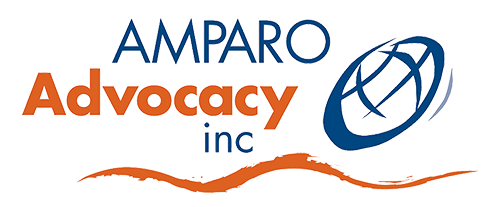AMPARO Advocacy has advocated on behalf of a young boy called Raja from a Liberian background who was at serious risk of being excluded from the Queensland education system due to a lack of appropriate educational, medical and therapeutic assistance. Raja arrived in Australia under the Humanitarian Program with his sole parent and five older siblings in mid-2006. His mother reports that she had not experienced any concerns regarding Raja’s behaviour until he commenced school in Australia. Prior to coming to Australia Raja had been living in a refugee camp for 3 years with his family and had not had access to any formal education.
Within a few months of commencing school in Australia it was identified by the teachers that Raja was experiencing significant learning difficulties, and was struggling to follow directions given by his teachers. He was frequently suspended from school due to physical and verbal aggression towards his peers and teachers and was diagnosed with Asperger Syndrome and Attention Deficit and Hyperactivity Disorder. Before AMPARO Advocacy became involved Raja had attended several different Special Education Units attached to various primary schools. He had only attended a Special Education Unit at high school for less than six months when he was expelled. Raja was very unhappy with being separated from his peers and felt the stigma of being seen to be different and was at serious risk of dropping out of school permanently. Raja was at serious risk of missing out on receiving a secondary school education and the long term impact of this would have been devastating.
Raja’s mother was struggling as a single parent and sole income earner to cope financially and emotionally to support her family in a new country. She had limited proficiency in English and required an accredited interpreter, particularly when having important information explained to her regarding her son or when needing to make important informed decisions. Language and cultural barriers meant that the family required much assistance to negotiate the educational system to ensure Raja was included in the best educational environment to meet his needs.
AMPARO Advocacy was also concerned that Raja’s diagnosis was formed without a culturally appropriate assessment of his needs for support.
Our advocacy efforts focused on ensuring:
- Culturally sensitive cognitive, speech and language assessment for Raja.
- Raja could attend an inclusive school and receive the best supports possible so that he could complete his secondary education.
- Teaching staff having access to support and information to provide the educational support that would enable Raja to continue his education without the risk of further suspensions or expulsion from school.
After much negotiation, Raja was enrolled in an inclusive independent secondary school, however he was again at serious risk of being expelled after attending this school for one month.
To achieve our goals for Raja over the past two years AMPARO Advocacy has worked closely and attended many meetings, with Raja’s mother, his teachers and the principal of the independent school to secure individualized support for Raja to pursue the subjects he is interested in so that he could complete his senior school education.
The school is staffed by a multi-disciplinary team of teachers, counsellors, youth workers and family workers with a philosophy of providing holistic support for attending students.
According to Education Queensland an inclusive education “builds communities that value, celebrate and respond to diversity. It is underpinned by respectful relationships between learners and school community members. It is supported by collaborative relationships with parents and communities through communication, learning partnerships, participation and consultative decision-making.”
To assist in maintaining Raja’s school enrolment, AMPARO Advocacy secured the involvement of behavioural specialists who undertook an appropriate cognitive, speech and language assessment taking into consideration Raja’s cultural and language background and previous lack of educational opportunities. These finding were summarized in a comprehensive report with specific recommendations which were implemented by Raja’s teachers.
AMPARO’s experience is that some government and non-government services are still not utilizing accredited interpreters. Advocacy was needed to ensure the presence of an accredited interpreter for every meeting Raja’s mother attended regarding medical, therapeutic and educational issues.
Advocacy efforts were also directed at securing appropriate therapeutic intervention from the Mater Hospital specialist clinic for children and support from the family General Practitioner. Language and cultural barriers required the advocate to attend many of these appointments to ensure:
- Onsite accredited interpreters were always provided
- The advocate had a thorough understanding of Raja’s complex support needs
- Raja’s mother understood the issues her son was facing and could make informed decisions of his behalf.
Raja has successfully maintained his enrolment at the school now for the past two years, studying those subjects that interest him and will soon complete grade ten. His teachers are working very closely with Raja and his family. He is attending school as required, participating to a greater extent across all school activities, growing in confidence and taking on more responsibilities.

